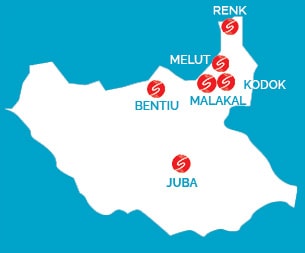In South Sudan, hunger and malnutrition are on the rise. In combination with floods, drought and conflict, they are plunging communities into a situation of extreme food insecurity. Humanitarian aid is essential to address the climatic suffering of the populations. The NGO SOLIDARITÉS INTERNATIONAL is implementing various projects in the country.
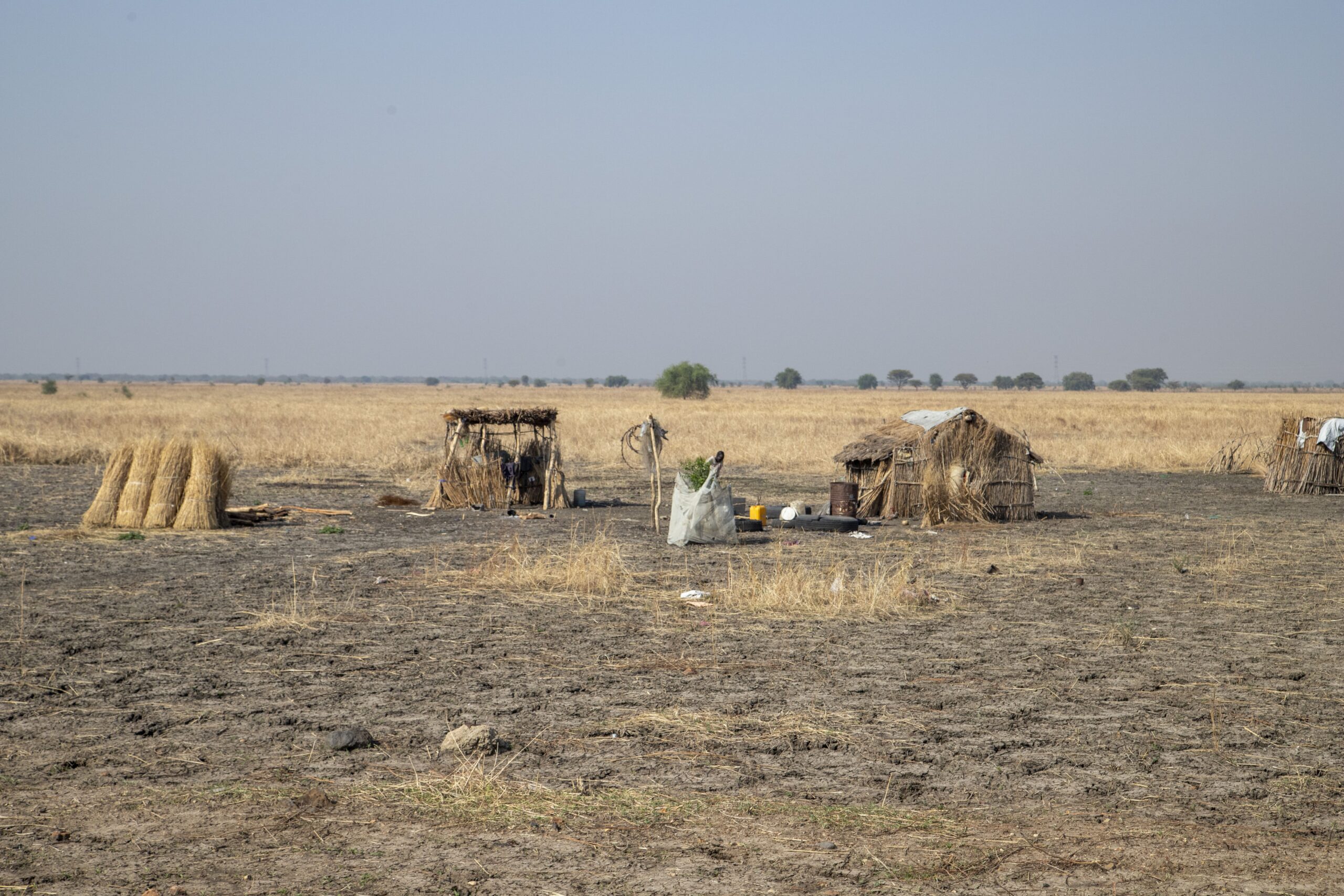
South Sudan, the world’s youngest country, is plagued by violence, food insecurity and a worrying economic situation. While the creation of this state had raised enormous hopes after decades of violence and fighting, power struggles and political instability are undermining the emergence of a true nation and dragging the country into a series of extended crises.
South Sudan
Context and action- 12.44 million inhabitants
- 191th out of 191 countries on the Human Development Index
- 388.560 people helped
Currently, according to the Office for the Coordination of Humanitarian Affairs (OCHA), 9.4 million South Sudanese are in need of humanitarian assistance or protection. Persistent violence, successive periods of flooding and drought have led to the destruction of livelihoods and crops, forcing people to move.
Melut County, Upper Nile State, South Sudan.
© Bebe Joel
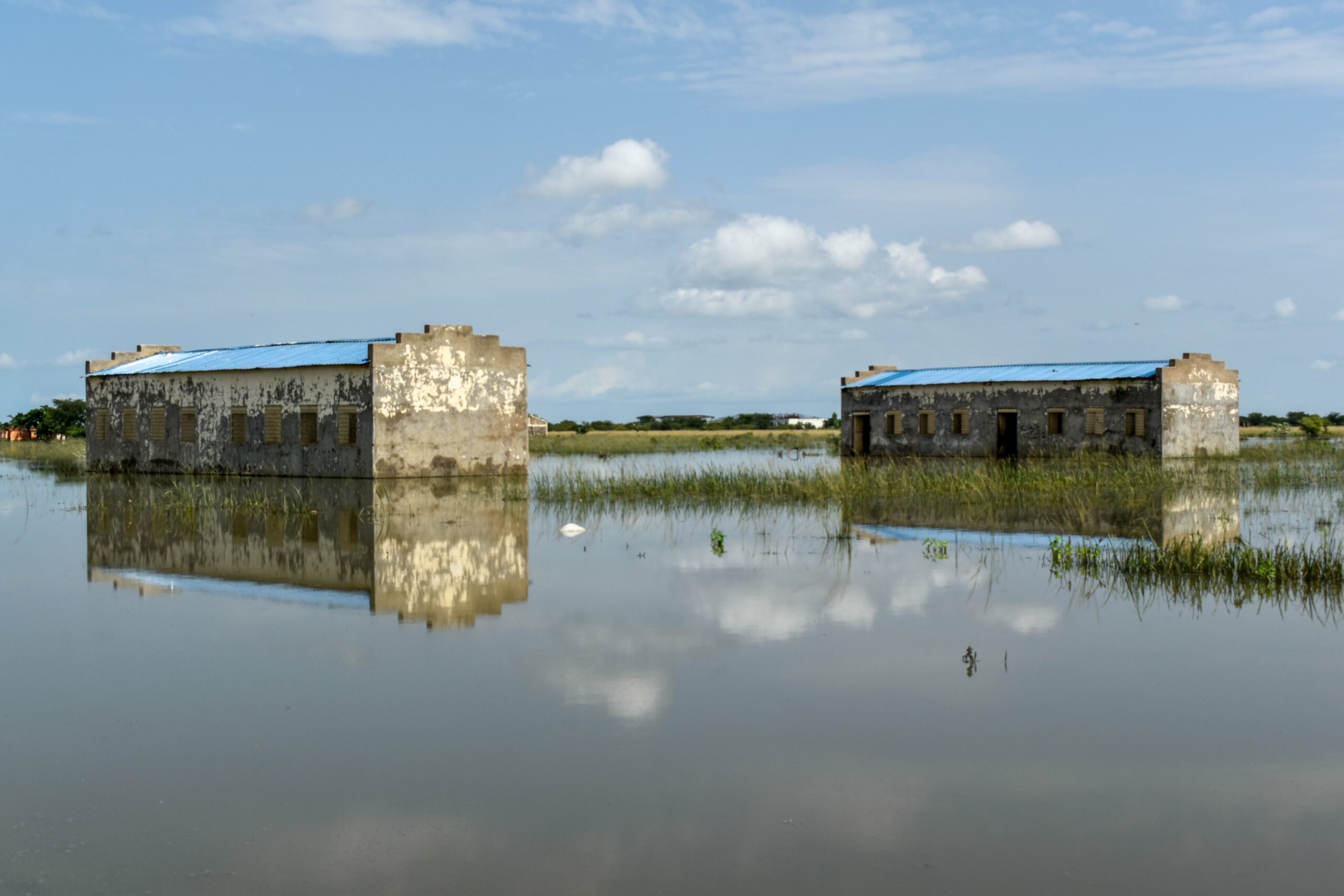
By 2022, the United Nations counted more than 2 million internally displaced persons (IDPs) and almost 350,000 people displaced by flooding and conflict in the northern state of Unity. The capital, Bentiu, has become a veritable island surrounded by water, artificially maintained.
Access roads have become impassable, homes have been abandoned, boreholes and latrines have been submerged, increasing the risk of epidemics.
Faced with the urgency of the situation, boats and an airstrip were set up to enable humanitarian aid to arrive.
Bentiu, capital of Unity State, South Sudan, February 22, 2023
© Bebe Joel
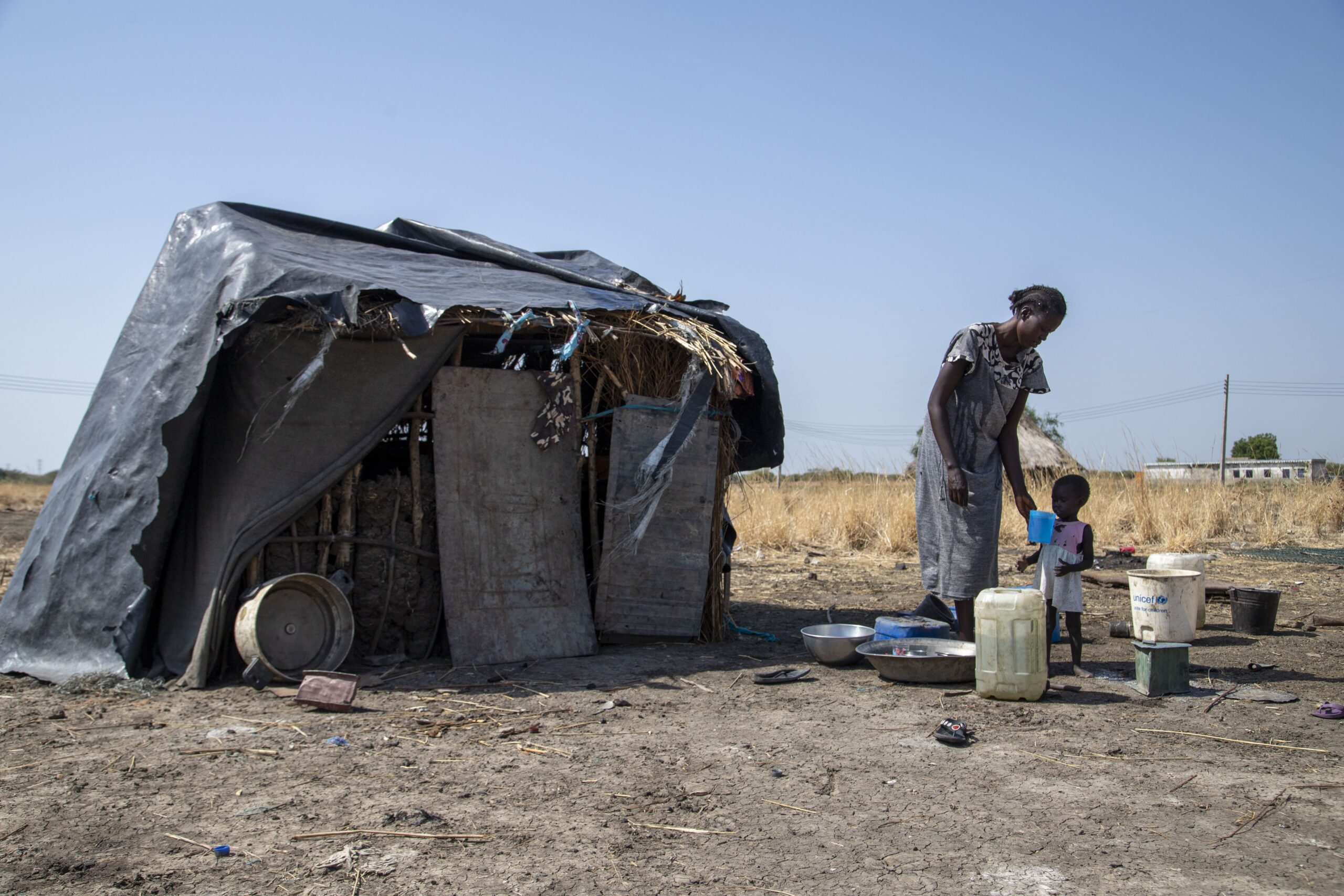
In Upper Nile State, successive floods have destroyed scarce drinking water and sanitation infrastructure. Household possessions and food stocks were washed away, undermining livelihoods.
In South Sudan, open defecation is a common practice. The lack of latrines, cultural habits and the presence of livestock near ponds expose the population to high risks of water-borne diseases.
Melut County, Upper Nile State, South Sudan, May 12, 2023
© Bebe Joel
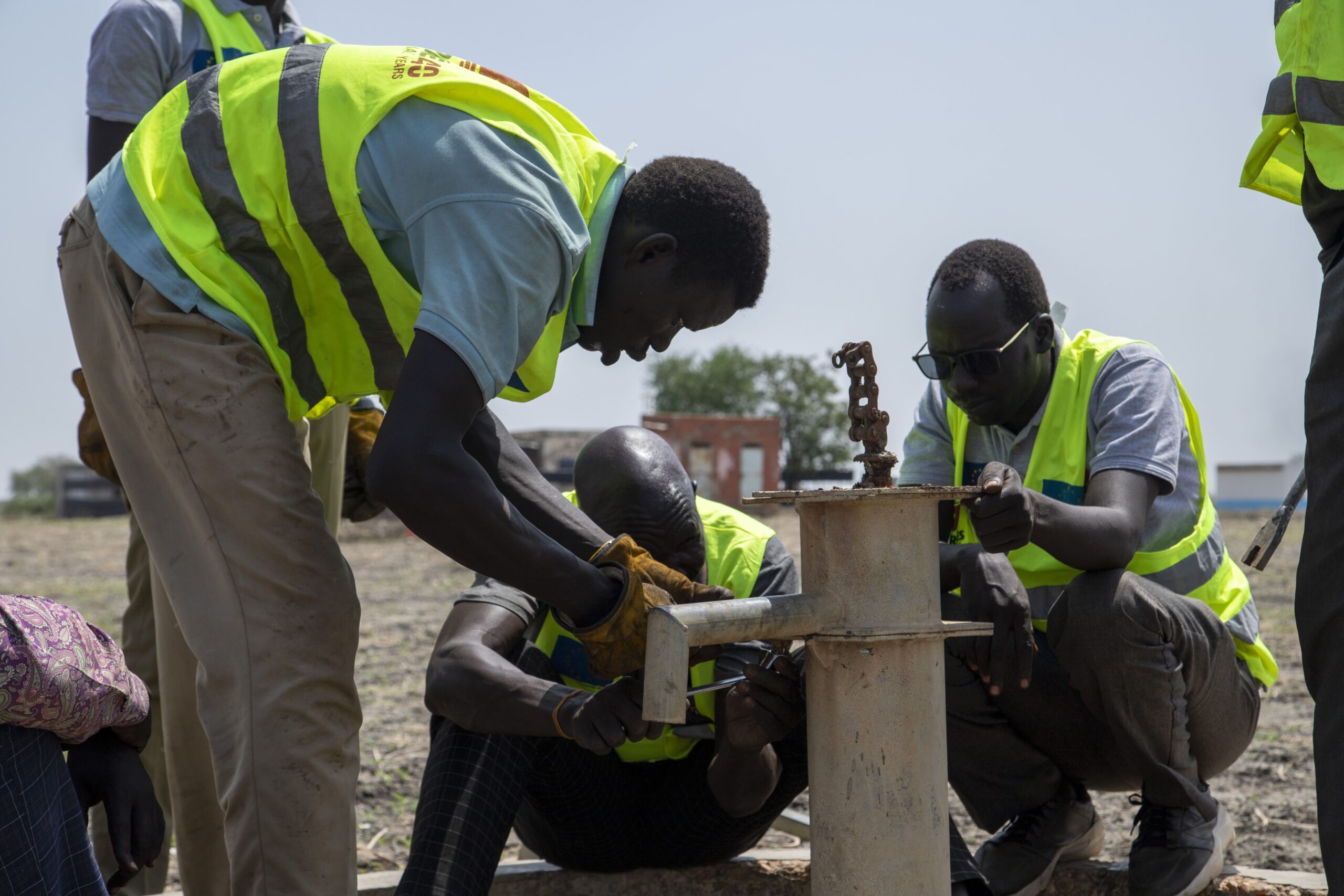
Faced with numerous humanitarian and climatic challenges, the NGO SOLIDARITÉS INTERNATIONAL has provided a water, sanitation, hygiene, food security and livelihoods response, identifying the priority needs of those affected.
Alongside mechanics, SOLIDARITÉS INTERNATIONAL teams are restoring damaged boreholes to provide the population with access to a source of drinking water.
Melut County, Upper Nile State, South Sudan May 12, 2023
© Bebe Joel
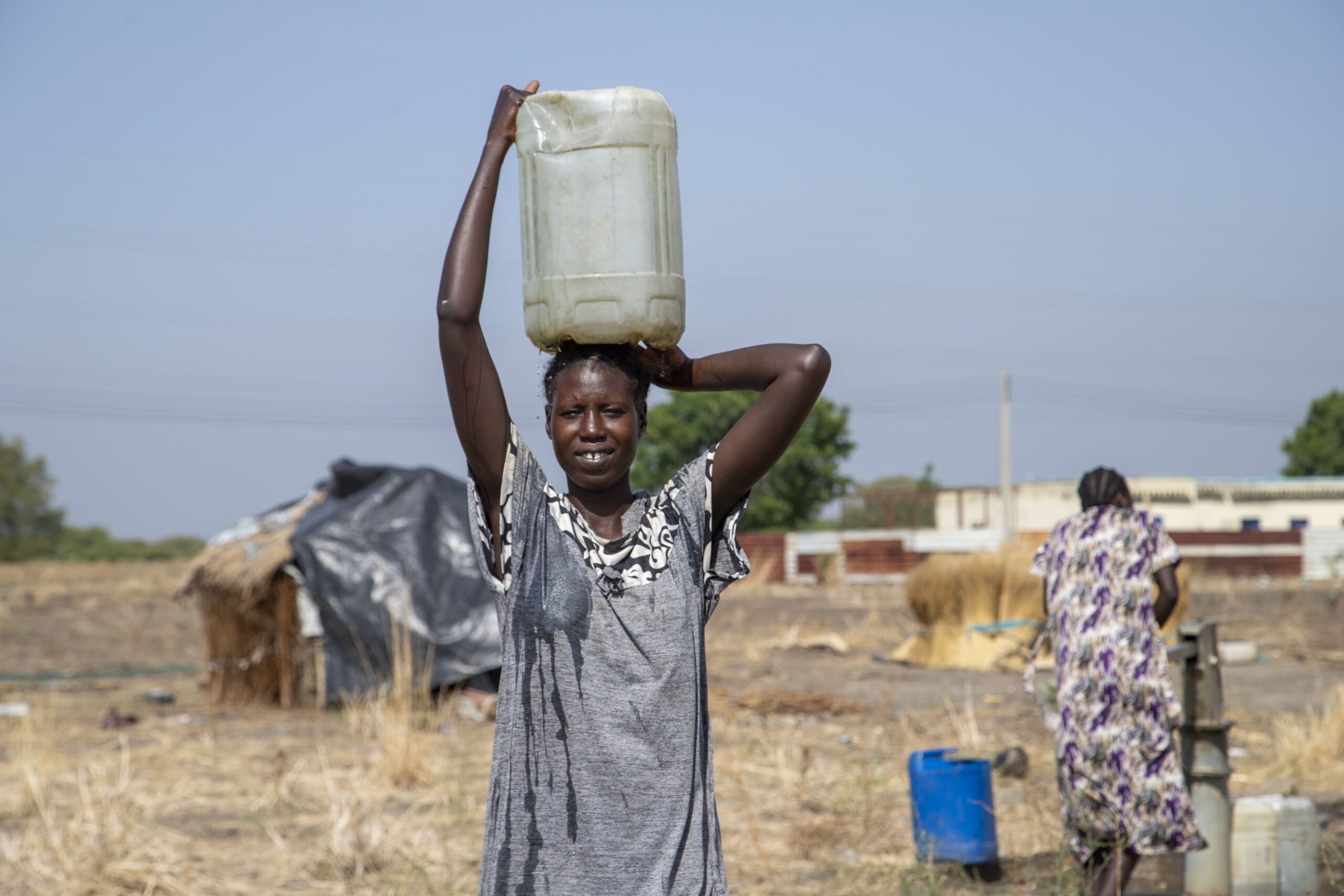
Niarok Nyok is 29 and lives in Melut, a county in Upper Nile State, with his three children.
“In 2020, we ran all the way here because the floods hit our village severely. I lost everything on my farm,” she explains.
For Nyarok, the restoration of drinking water infrastructures is a real relief: “Before, we used to fetch water from one of the ponds, more than an hour’s walk away. This water source was not clean, as animals also drank from it. Sometimes, the government delivers water by truck, 16 km from here, but that’s not enough. Thanks to the rehabilitation of the borehole, we can access drinking water more quickly and easily, while preventing the spread of certain diseases.”
Melut County, Upper Nile State, South Sudan, May 12, 2023
© Bebe Joel
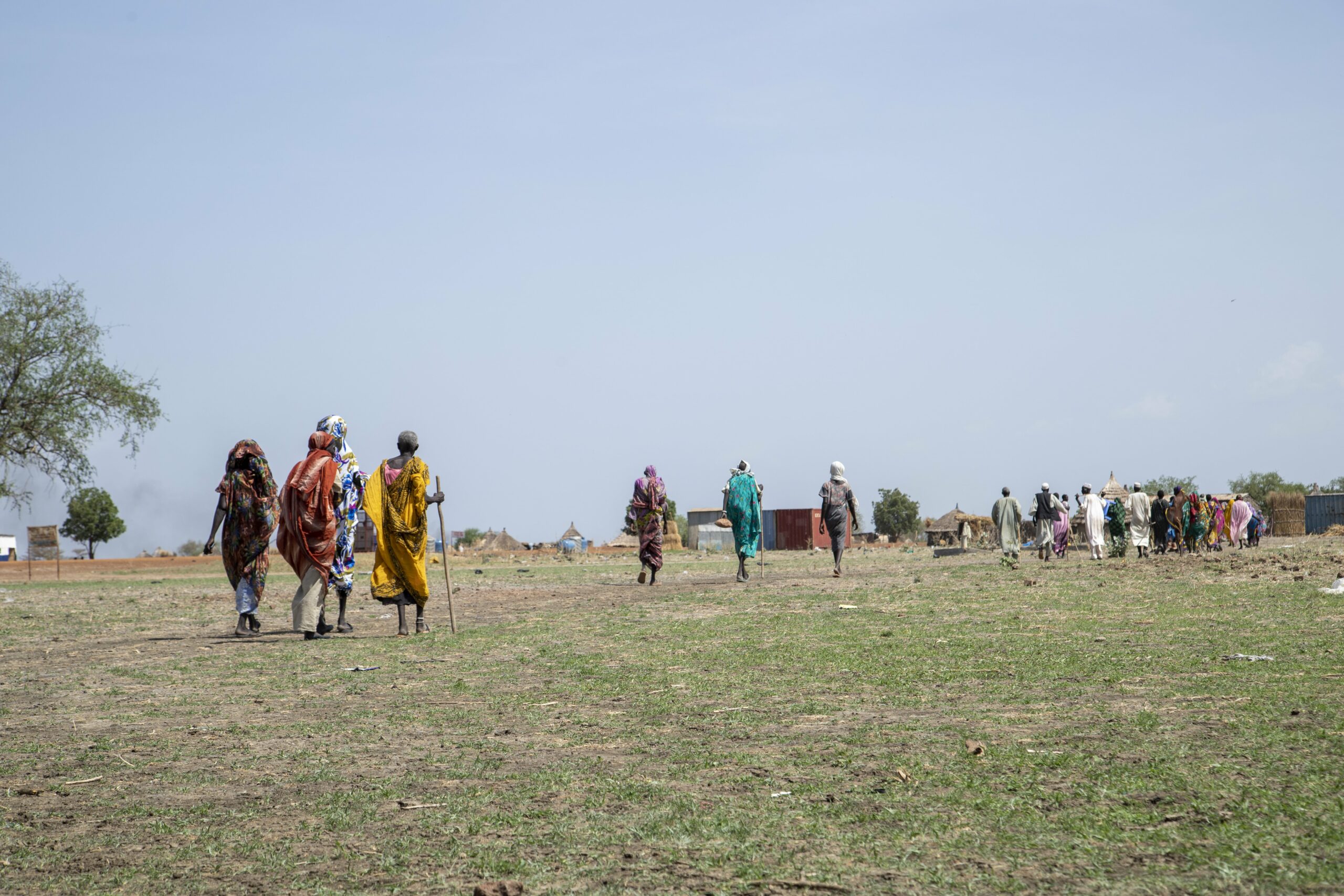
From one day to the next, thousands of people forced to move found themselves with nothing, without the necessary means, either financial or material, to start up any kind of business.
In response to the consequences of the droughts and floods, SOLIDARITÉS INTERNATIONAL is strengthening the livelihoods of farmers by distributing tools and means of transport, thereby facilitating their activities and improving production.
Malakal, capital of Upper Nile State, South Sudan, May 16, 2023.
© Bebe Joel
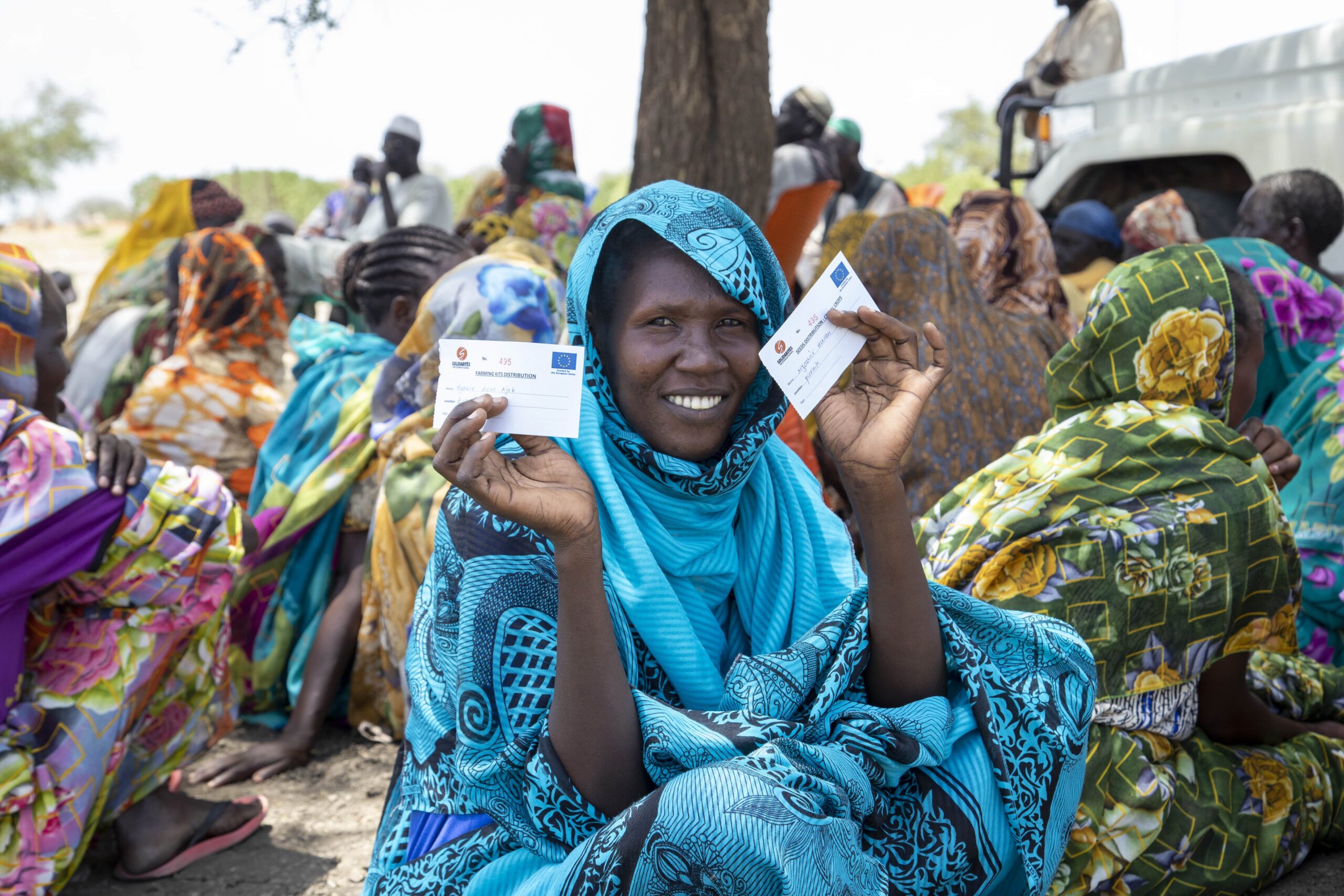
Nyawi, a mother of 7, is a displaced resident. Like many people in the same situation, she is waiting to receive agricultural kits.
“Before the flood, life was good. I planted okra, corn, sorghum and other vegetables. I had enough to feed my seven children. The floods took everything away and forced us to come here,” she says.
By 2022, more than 7 million South Sudanese are facing extreme food insecurity, warned a United Nations agency.
Melut County, Upper Nile State, South Sudan, May 12, 2023
© Bebe Joel
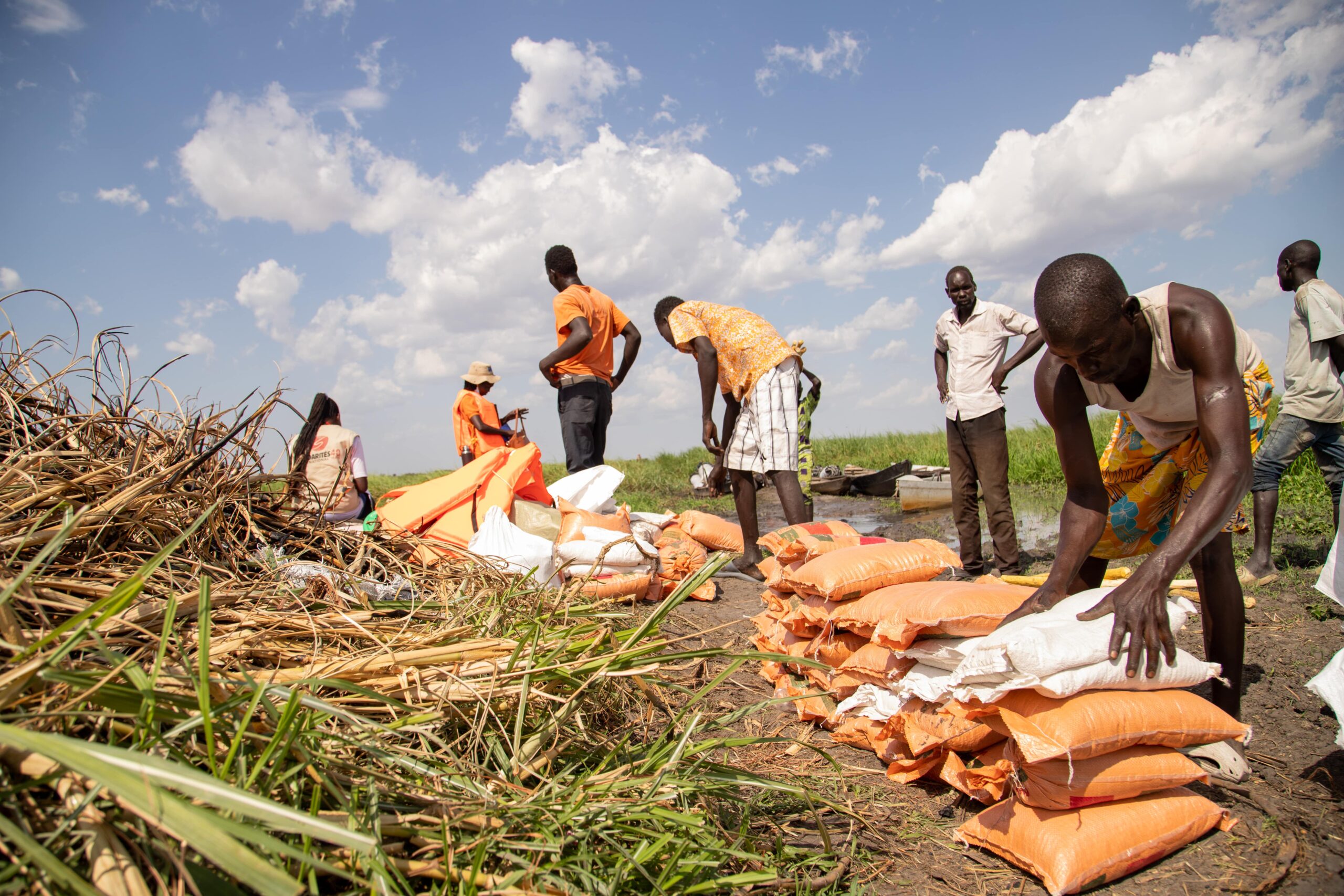
Community volunteers and casual workers are responsible for distributing agricultural tools and seeds to help people restart an agricultural activity.
Malakal City, Upper Nile State, South Sudan, May 16, 2023.
© Bebe Joel
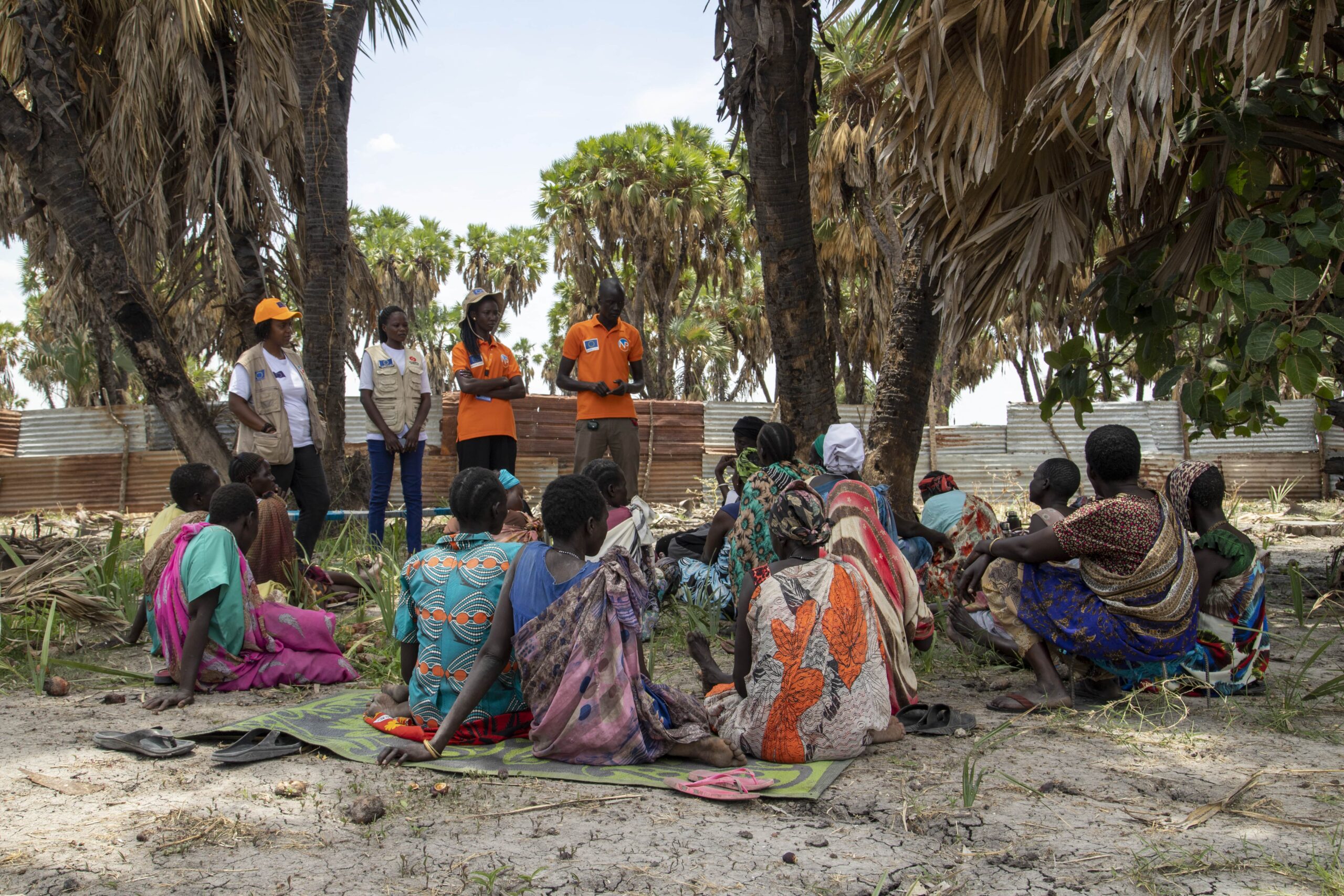
To help communities get back on their feet, SOLIDARITÉS INTERNATIONAL teams provide training in sustainable agricultural practices.
The aim is to support families and communities weakened by conflicts and the effects of climate change, until they recover the means of their subsistence and autonomy, enabling them to face future challenges with dignity.
Melut County, Upper Nile State, South Sudan, May 12, 2023
© Bebe Joel
Header photo: © Bebe Joel

